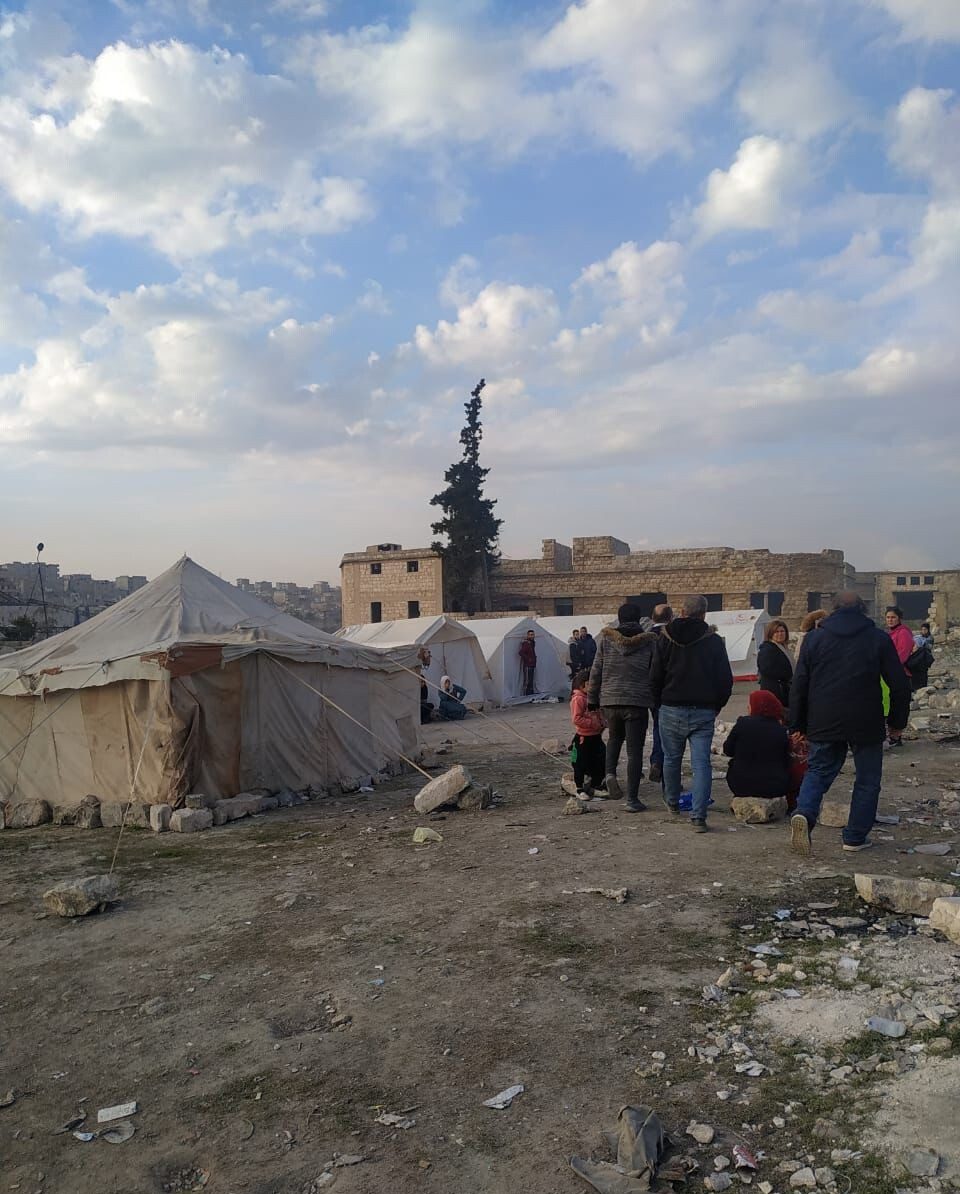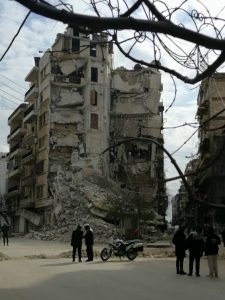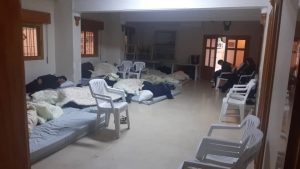On February 6, 2023, at 4:17 a.m., the people of Aleppo, Syria, were fast asleep. Heavy rain and hail were rattling against the houses.
Pastor Oswald, a local Nazarene pastor, has been particularly thankful for the safety of his house lately. It has been a tough decade for the residents of Aleppo. Since March 2011, Syria has been in the throes of a violent civil war. More often than not, for Oswald and his family, sleep has been interrupted by the sounds of war.
So when the rattling grew louder, the pastor realized it was not just the rain anymore causing the disruption, and he gasped awake. They had grown used to the sounds of war, but this was different.
His wife jumped out of bed and ran toward their daughter. The closets, windows, and walls were shaking.
All three of them, still in pajamas, ran down the stairs in a rush. It felt as if all of Aleppo was running to the streets. The shouts of shocked citizens were drowned out by the rainstorm.
Hours later, around 7 a.m., his family huddled in the back of his brother-in-law’s pick-up truck. They were safe and out of the range of any aftershocks but not from the pummeling rain. Oswald wished he had remembered to get his glasses as he squinted in the early light, starting to take in the destruction around him.
For the next week, his 9-year-old daughter was too afraid to re-enter their building at night. They had to stay up late at church and then carry her home when she fell asleep.
That Nazarene church became a hub for many of the congregation and community members impacted by this 7.8 magnitude earthquake–the deadliest for Syria and Turkey on record.
People whose homes were damaged slept in community and religious centers. Although the Nazarene church building was deemed at risk and couldn’t immediately house people, the space could be used for worship and give out needed supplies such as food and water.
While the first few hours of the earthquake were sharp in Oswald’s memory, the next several weeks passed in a blur of activity. Blankets and money arrived from the Nazarene churches in Lebanon and across the world.
The church members took blankets and other aid items to the Kurdish-controlled area of Sheikh Maksoud, where they handed them out in a local field. They then visited local hospitals as well as shelters and gave out hats, blankets, lanterns, and hot meals. Oswald said that the aid that streamed in lasted for two solid months.
After the initial hustle of emergency response in shelters and as people returned home, the church members started to do home visits. As they sat with community members who were still processing the earthquake’s impact, they were met with unimaginable loss. One family was a group of four elderly sisters whose only brother had died in the earthquake. Then, a few days after the disaster, one of the sisters also passed away.
Another time, the church members found many Kurdish families living in an abandoned factory; they were given blankets and food and helped to the local aid camp.
The people who were refugees at the camp began to call it “the Nazarene camp” because the church was present almost daily to support people.
They cared for an orphaned child whose family was from a different faith background. The child would later begin to attend church. In fact, the church started experiencing an extraordinary growth in attendance. The church brought a battery to power fans and two projection screens. They put out around 170 chairs, and still, people were standing during the service.
“The people come to hear the Word of the Lord even as we run out of aid [items],” said Pastor Oswald.
The church also held services in nearby Christian centers with larger rooms or courtyards. During this disaster, the support of various local and international partners continued to be a great encouragement to the local church.
Since the beginning of the earthquake, the people of Aleppo have had to rely on each other to get through this crisis.
Amal, a woman who attends the church, first met Pastor Oswald in one of his clinics. She had lost contact with him during the height of the war in Aleppo but found him again a few years ago when she began to attend church.
When the earthquake hit, Pastor Oswald visited Amal and offered to find her two sons and their respective families a place to sleep. The church has continued to help them with food coupons and medical care.
Amal praises God, saying, “I felt that the Lord Jesus sent the church to help me. Their help is not only financial but also [shares] a human touch and heartfelt care.
-shared from NCM Magazine






